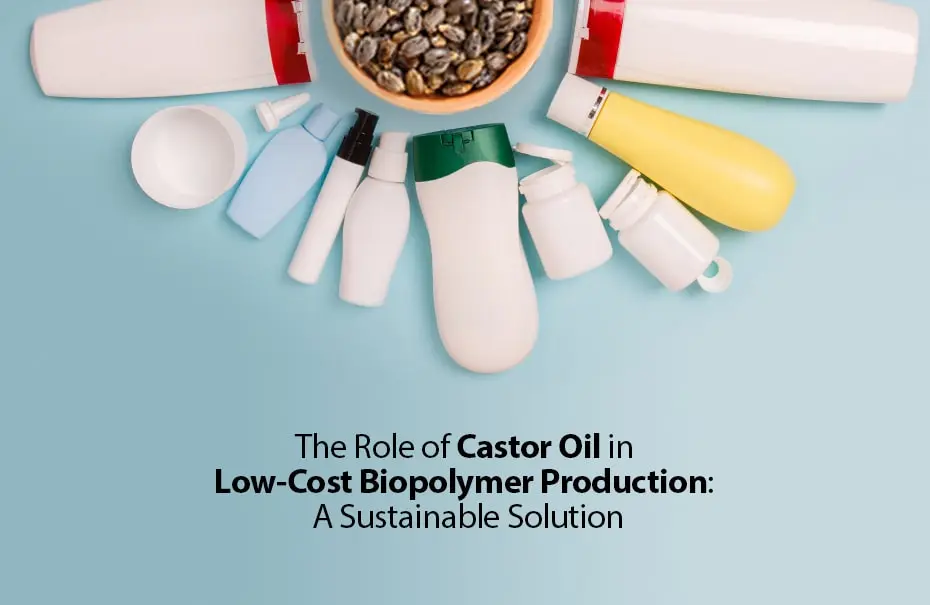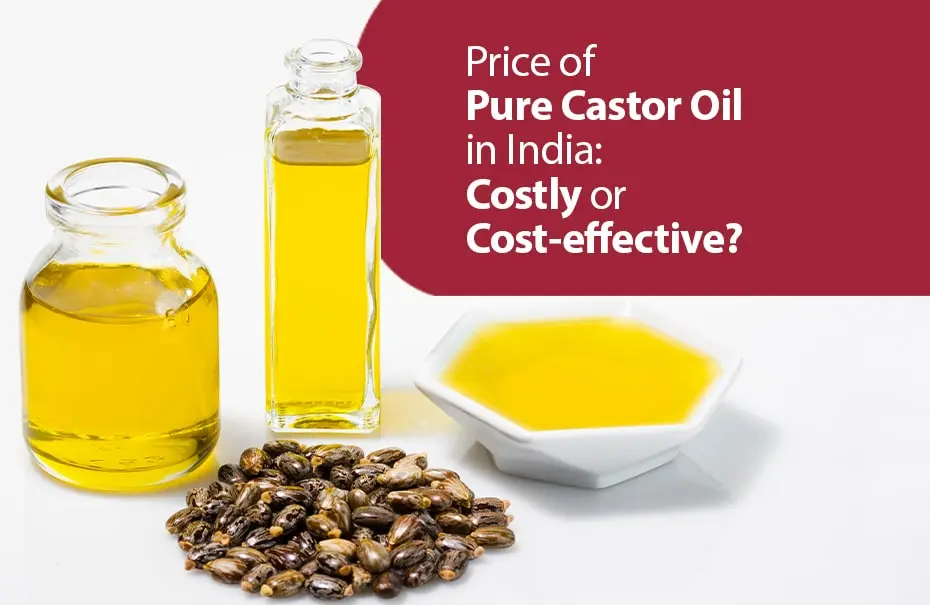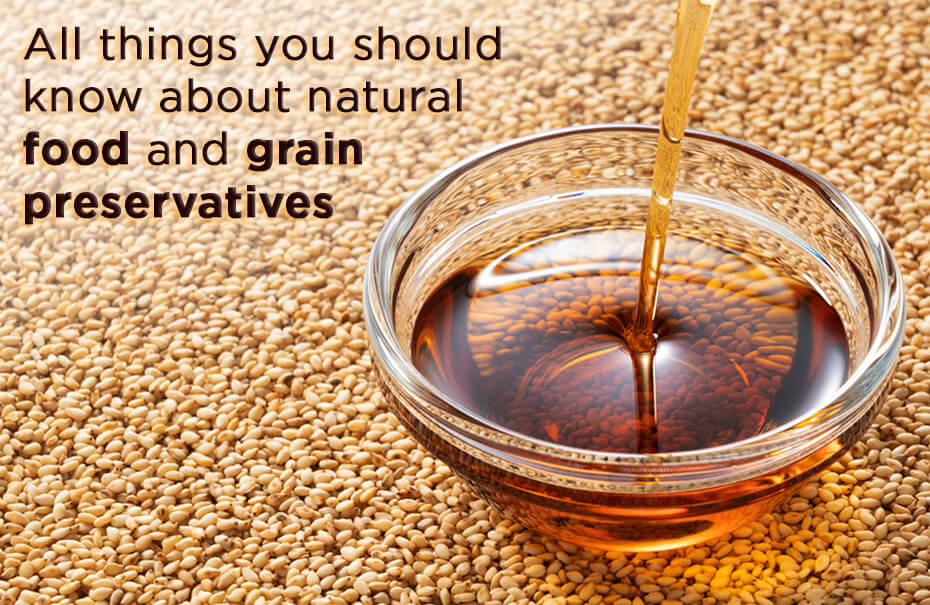The Role of Castor Oil in Low-Cost Biopolymer Production: A Sustainable Solution

On 5th June 2023 which is known as World Environment Day, a campaign called #BeatPlastic Pollution started becoming viral which although is not a new concept but is something we must take action seriously because plastic is suffocating our planet Earth Its time to not just look but start using eco-friendly and sustainable alternatives to plastic like Biopolymers which is derived from a vegetable oil known as Castor Oil.
Plastic Pollution – A Significant Threat to Planet Earth
We all know how growing plastic pollution is slowly suffocating our planet Earth posing a serious threat to our ecosystems, wildlife, and human health. It is already rising at an alarming rate causing destruction like ocean pollution, clogged waterways, killing marine life, and so on. And the reasons for such a threatening rise in plastic pollution are our own actions. Due to improper waste management, inadequate recycling infrastructure, and excessive use of single-use plastics and plastic packaging we only have led to a massive increase in plastic waste generation worldwide.
Since plastics are non-biodegradable materials, they persist in the environment for hundreds of years, slowly breaking down into smaller microplastics which are even more dangerous as they are easily ingested by marine animals and even enter our food chain creating consequences like internal damage, starvation, and reproductive issues. Guess what? Microplastics have been found in drinking water, seafood, and even the air we breathe today, raising concerns about potential health risks to humans.
Hopefully, there are certain ways to address the plastic pollution crisis which include reducing plastic production and consumption, promoting recycling and circular economy practices, implementing effective waste management systems, raising awareness among individuals, businesses, and governments, and supporting sustainable alternatives.
So, today in this blog post, we will see about one such excellent and thoughtful alternative to conventional plastic i.e. Biopolymers, and explore the significant role of castor oil in the production of low-cost biopolymers.
Understanding Biopolymers and Their Significance
Biopolymers are polymers derived from renewable sources such as plants, bacteria, and animals. They offer a sustainable solution to the environmental issues caused by traditional petroleum-based plastics. Biopolymers have been in the limelight for the past few years due to their praise-worthy benefits like biodegradability, reduced carbon footprint, and potential for a circular economy. By taking advantage of biopolymers, we can actually minimize the reliance on non-renewable resources and mitigate the harmful effects of plastic waste on the environment.
Various industries utilize biopolymers, including packaging, textiles, agriculture, medicine, and automotive. Some examples of biopolymers include:
Polylactic Acid (PLA) – Derived from renewable resources like corn starch or sugarcane commonly used in packaging, disposable cutlery, and textiles.
Biodegradable Polyhydroxyalkanoates (PHA) – Produced by certain microorganisms through fermentation and has applications in packaging, medical devices, and agricultural films.
Starch-Based Bioplastics – Made from starch obtained from corn, potatoes, or other starch-rich crops and are used in packaging, disposable products, and agricultural films.
Castor Oil: An Eco-friendly Solution for Biopolymers
Extracted from the seeds of the castor oil plant (Ricinus communis), castor oil is a valuable natural treasure with a wide range of applications. Thanks to its unique chemical composition, castor oil proves to be an ideal candidate for producing low-cost biopolymers. It contains a high concentration of ricinoleic acid, a monounsaturated fatty acid, which imparts desirable properties such as flexibility, durability, and resistance to moisture. Additionally, castor oil is non-toxic and readily available, making it a sustainable choice for biopolymer production.
To obtain fine-quality biopolymers, castor oil is first processed to remove any kind of impurities. Thereafter, it is subjected to chemical reactions, such as polymerization or condensation, to form the desired biopolymer. The resulting biopolymer can then be shaped into different forms, such as films, fibers, or molded products, depending on the industrial application.
Biopolymers from castor oil come with several advantages over conventional plastics. First of all, they reduce reliance on fossil fuels as they are derived from renewable resources. Secondly, they can be biodegradable under certain conditions, minimizing their environmental impact. Additionally, they can exhibit good mechanical properties and have applications in various industries, including packaging, textiles, automotive, and biomedical.
It’s important to note that the production and use of biopolymers still have certain challenges, such as cost-effectiveness, scalability, and ensuring proper waste management. However, ongoing research and advancements in technology are addressing these issues and making biopolymers a promising solution in the quest to reduce plastic pollution and promote sustainability.
Top Applications of Castor Oil in Low-Cost Biopolymers
Castor oil biopolymers have gained attention as sustainable alternatives to conventional petroleum-based polymers in recent years and hence they offer several potential applications across various industries due to their unique properties, some of which are as follows:
Biodegradable Packaging Materials – Castor oil-based biopolymers are extensively used in the production of biodegradable packaging materials. These materials offer an eco-friendly alternative to traditional plastic packaging, reducing environmental pollution and promoting sustainable practices. Castor oil’s excellent film-forming properties and moisture resistance make it an ideal component for creating protective coatings, films, and wraps.
3D Printing – Castor oil biopolymers can be used as feedstock materials in 3D printing. Their ability to be processed into filaments or resins makes them suitable for additive manufacturing applications.
Adhesives and Sealants – In industries such as construction, automotive, and packaging, adhesives and sealants play a crucial role. Castor oil-based biopolymers are used to manufacture eco-friendly adhesives and sealants that provide excellent bonding and sealing properties. These sustainable alternatives reduce the reliance on petroleum-based adhesives, contributing to a greener and more sustainable future.
Bio-Based Plastics – Castor oil is also utilized in the development of bio-based plastics, which can replace petroleum-based plastics in various applications. These plastics exhibit similar properties to conventional plastics but have a significantly lower environmental impact. Castor oil enhances the biodegradability and strength of bio-based plastics, making them suitable for applications such as consumer goods, automotive parts, and medical devices.
Coatings and Paints – Castor oil biopolymers can serve as sustainable binders for coatings and paints. They can provide excellent film-forming properties, adhesion, and resistance to abrasion. These coatings can be applied in the architectural, automotive, and industrial sectors.
Personal Care Products – Castor oil biopolymers can be used in the formulation of personal care products, such as cosmetics, lotions, and creams. They can act as emollients, thickeners, and stabilizers, providing desirable texture and enhancing product performance.
Agriculture and Crop Protection – Castor oil biopolymers have the potential to be used in agricultural applications. They can be employed as biodegradable mulch films, seed coatings, or encapsulation materials for controlled release of fertilizers or pesticides.
Biomedical Applications – Castor oil biopolymers have been explored for biomedical applications, including the development of biocompatible and biodegradable medical devices. They can be used in areas such as tissue engineering scaffolds, drug delivery systems, and surgical implants.
Textiles and Apparel – Castor oil biopolymers can be utilized in the textile industry to produce eco-friendly fabrics and fibers. They can be processed into materials with desirable properties such as durability, moisture wicking, and thermal regulation.
Implementation of Castor Oil in Biopolymer Production
The quality and ability of a biopolymer depends upon the castor oil and hence it is important to source high-quality castor oil from reliable suppliers like us Ambuja Solvex first which meets the required specifications and complies with sustainability standards.
Next, a suitable biopolymer matrix that complements the desired properties of the final product is selected for the polymerization process after considering factors such as temperature, reaction time, and catalysts to achieve desired polymer properties.
Further, castor oil is incorporated into the biopolymer matrix through a blending process, ensuring proper dispersion and homogeneity of the mixture.
Rigorous testing and quality control measures to assess the physical, mechanical, and thermal properties of the castor oil-based biopolymer are then conducted to ensure that the final product meets the required standards and specifications.
Conclusion
The utilization of castor oil in low-cost biopolymers presents a significant opportunity to address the environmental challenges associated with traditional plastics. By incorporating castor oil into biopolymer production, we can create sustainable materials that promote a greener and more circular economy. With ongoing research and development, castor oil-based biopolymers are poised to revolutionize various industries and contribute to a more sustainable future.



